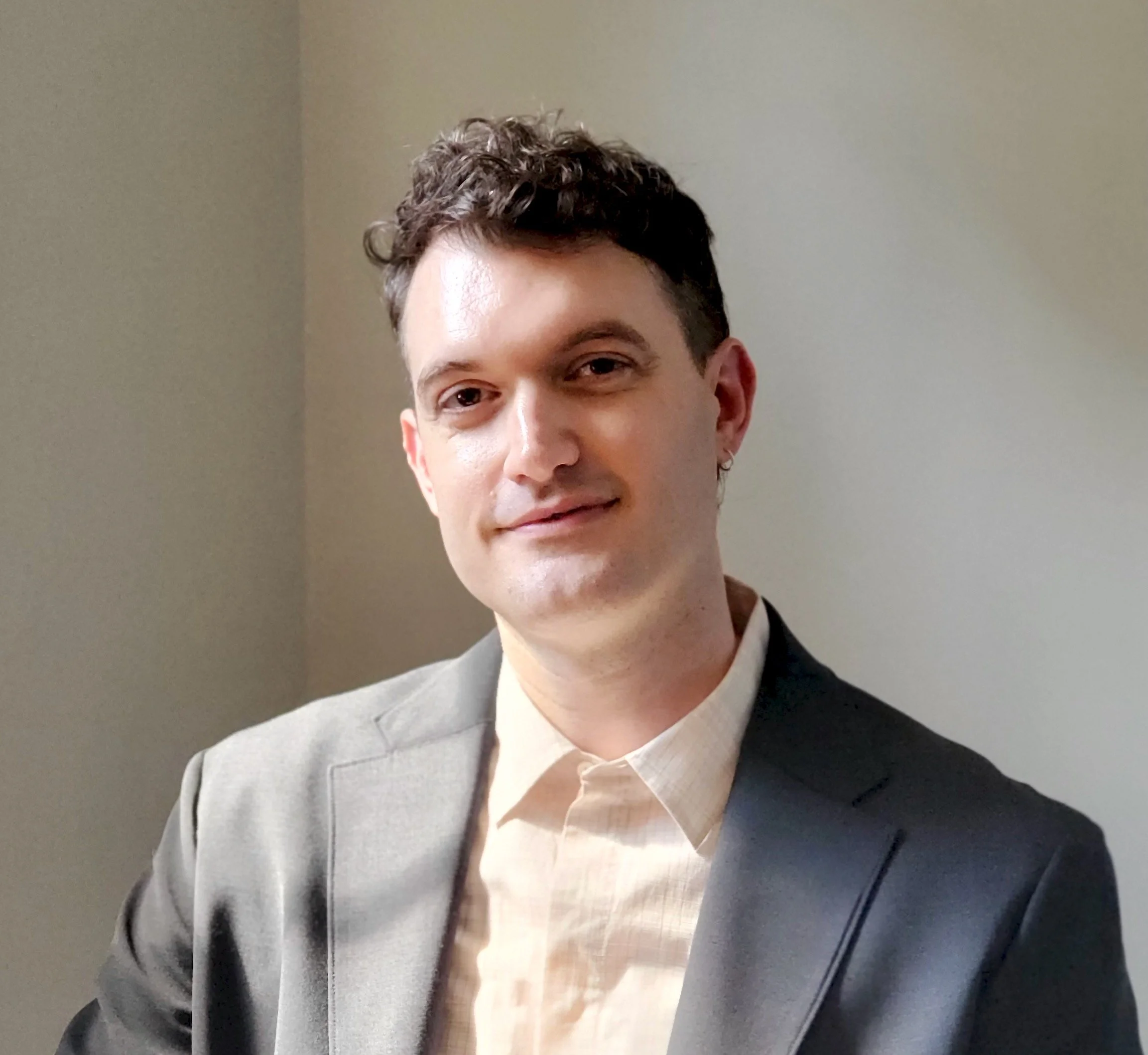
About Me
Training and Experience
I came into psychology with a strong interest in the relationship between psychology and philosophy. I began my graduate school education studying Jungian psychoanalysis, existentialism, and queer theory at Union Theological Seminary in the city of New York. At the doctoral level I specialized in psychodynamic/psychoanalytic psychotherapy at the Ferkauf Graduate School of Psychology, Albert Einstein College of Medicine, Yeshiva University.
My master’s thesis was focused on gender nonconformity among a class of priest(esse)s in the Roman empire, while my doctoral research centered on the study of body-image in the gay male community. During my doctoral training, I worked at a variety of clinical sites, including Memorial Sloan-Kettering Cancer Center, Bronx State Psychiatric Hospital, Pace University Counseling Center, and the National Institute for the Psychotherapies.
Since graduating I have sought additional training at the Postgraduate Psychoanalytic Society and Institute, and I am currently a candidate-in-training with the New School for Existential Psychoanalysis.
Before starting my private practice I worked as a senior supervising psychologist at the Jewish Theological Seminary of America.
In addition to my private practice, I currently serve as an adjunct supervisor at the Ferkauf Graduate School of Psychology.
About Me
Originally from North Carolina, I lived and worked in China for several years after college before moving to New York City in the late 2000’s. As a queer adolescent in North Carolina, I learned from an early age that the norms of society and of the family, when they are at odds with our own inner truth, have the potential to cause great personal harm.
As an adult I discovered the work of the Scottish psychoanalyst R. D. Laing, whose books such as The Divided Self, and The Politics of the Family sought to expose how so-called “mental illness” was often an understandable response to a society or family gone mad. Laing’s approach was non-judgmental, and sought to connect with people as whole beings (not collections of symptoms and diagnoses), and to help them clarify and seek out what they really wanted in life. This approach remains the cornerstone of my work.
I am a member in good standing with the following professional organizations:
American Psychological Association, Society for Psychoanalysis and Psychoanalytic Psychology
The New School for Existential Psychoanalysis
Connecticut Society for Psychoanalytic Psychology
The National Register of Health Service Psychologists
Philosophy
Psychotherapy is a means of deepening one’s engagement with one’s life in order to experience liberated self-determination. As a singular space of encounter between people, psychotherapy provides the opportunity for individuals to examine and explore aspects of themselves and their experiences which may otherwise be too overwhelming or confusing, or that have simply gone beyond notice. As Emily Dickinson wrote, “The mind is so near itself - it cannot see, distinctly.” Within the context of an attuned therapeutic relationship, we are empowered to see ourselves and our desires more clearly, often leading to a new and expanded awareness of how we are contributing to the construction of our experiences and our lives.
The importance of turning inward lies in its countering the pull to concentrate our awareness on the external world, a pull that is exerted by a popular culture strengthened by the facilitating environment of the internet. Through shifting one’s awareness inwards in the context of a supportive and collaborative therapeutic relationship, individuals are empowered to explore and assess their “thrownness into the world” (Heidegger) in a way which leads to liberation and greater contact with essential freedom. We can discover ourselves as creative and spontaneous beings who take ownership of our lives, choices, and desires, rather than relying solely on a deterministic algorithm.
Finally, I am acutely aware of psychology’s history of pathologizing variant sexual and gender identities, and do not hold the idea that mental health professionals know better than their patients/clients what is best for them.
“Caring for myself is not self-indulgence, it is self preservation, and that is an act of political warfare. ”
Specializations

What is Existential Psychoanalysis?
“Existential psychoanalysis” is a method of psychotherapy growing out of the ongoing conversation between psychoanalysis and existential philosophy. The first thinker to engage heavily with this project was Jean-Paul Sartre, although it has been taken up by a number of others, including Maurice Marleau-Ponty, Rollo May and Medard Boss. Other philosophers relevant to this project include Friedrich Nietzsche, Martin Heidegger, Soren Kierkegaard, and Albert Camus. One of the hallmarks of this approach is the phenomenological method, which privileges immediate experience as a starting point for understanding oneself in the world.
Existential psychoanalysis is a talk-based therapy which requires candor and curiosity. It draws on the insights into the human condition of the thinkers listed above, as well as prominent psychoanalytic theorists such as Sigmund Freud, Donald Winnicott, and Jacques Lacan. It always works to center the individual as a whole, respecting their unique individuality and life story. As you get to know yourself better, new avenues and choices are opened up, and a certain integrity of one’s being-in-the-world is facilitated.
In mainstream clinical practice the primary goal is usually described as “symptom reduction,” or an increased insight into one’s own psychology, or improved interpersonal functioning. While these things are important and should be a part of any successful psychotherapy, existential psychoanalysis is also interested in a kind of “growing down” into ourselves, a phrase I borrow from the philosopher Freya Matthews. I like this phrase because it suggests deep inner movement, and underscores the importance of remaining connected to ourselves, each other, and the world.
Specializations:
Unwanted Thoughts and Feelings
Trauma
Relationship Conflicts
LGBTQIA+ Issues
Indecision and Academic/Career Concerns
Depression and Anxiety
“[E]very moment of our life wants to say something to us, but we refuse to listen [...]. ”
The Practice

Psychotherapy Services
My practice began at 177 Prince Street in Soho, New York City. During the Covid-19 pandemic I moved online along with many other practitioners. Although this initial decision was necessitated by circumstances, I soon realized that working online allowed more flexibility for everyone, as well as the ability to offer services more consistently and to a wider range of individuals. What’s more, numerous empirical studies and meta-analyses have demonstrated that teletherapy is equally effective to in-person treatment. As a result of these developments, I decided in 2022 to keep my practice primarily online. In addition to New York state I am also licensed to provide therapy in Connecticut and Massachusetts, and I currently maintain an in-person office in New Haven. I utilize a HIPAA-compliant encrypted platform for sessions.
I work with adults and adolescents in short or long-term psychotherapy.
I envision my practice to be a place where clients can explore reconnecting with an authentic place of power and creativity. This process begins with clients feeling a good connection or “fit” with me as a practitioner. For this reason, I offer a free 15-20 minute phone consultation. If it feels that I am suited to your needs, we can schedule an initial appointment to continue the assessment and develop a collaborative plan for moving forward. I recommend you commit to at least 8 sessions, as it often takes that long for clients to begin to feel an improvement.
I am directly contracted with NYU and do accept the NYU student health insurance (Wellfleet). I am also in-network with Aetna. Although I am out of network for other insurance plans, I believe therapy should be accessible to all and I do offer a sliding scale fee. I am also happy to assist you in filing for out-of-network benefits from your insurance company.
Contact




